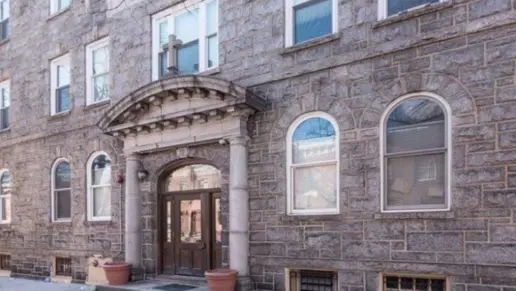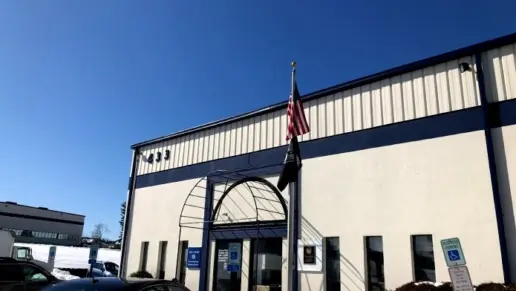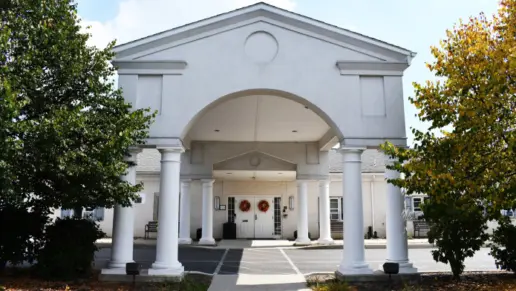Awful place, they take your food stamps, which is illegal, and all you get in return is bedbugs.
About Men and Women for Human Excellence
Men and Women for Human Excellence, Inc. (MWFHE) is a community focused outpatient addiction recovery facility in Philadelphia, Pennsylvania. They promote community wellbeing through tailored recovery oriented programs that build on your strengths. MWFHE provides a safe space where people in recovery can grow and heal.
Their well rounded network of support mechanisms helps you achieve and maintain a stable and healthy lifestyle. Most people in the community struggle with both substance use and mental issues. MWFHE supports people with this condition through an integrated treatment approach.
The thing I like most about MWFHE is that you’re fully involved in your healing journey. From initial screening and assessment to treatment planning, recovery support and the creation of an ongoing care plan for life after the program. They offer general outpatient (OP) and intensive outpatient (IOP) levels of care. Both programs offer flexibility in that you can continue your job or family responsibilities while receiving tailored care.
The IOP is relatively more structured and suitable if you need more therapeutic support but not residential. It involves nine hours of weekly group therapy split into three hour sessions over three days. You’ll also attend one hour individual sessions weekly with your primary therapist to address personal challenges and set realistic recovery goals. A comprehensive screening and intake assessment helps them tailor therapy to your unique goals, strengths and cultural preferences.
Your personalized care may also include medication assisted treatment if you’re dealing with opioid addiction or alcoholism. This technique uses FDA approved meds to help you curb cravings and reduce painful withdrawal symptoms. It also involves counseling to tackle the psychological symptoms of opioid use. This integrated approach facilitates whole person healing.
The facility has several support services that can augment your personal recovery experience. This includes anger management training, tai chi and domestic violence forum. There’s also peer specialist, faith based spirituality and women’s support group. These services provide a well rounded foundation to support your healing journey.
Their full spectrum of care includes case management services as well. This may involve help with stable housing for the homeless and job placement for the unemployed via community linkage. They can also connect you with self help groups for ongoing support.
MWFHE is situated in an urban part of North Philadelphia near Temple University. The area is well served by SEPTA buses and trolleys with Route 3 Bus running along Cecil B. Moore Avenue. The Broad Street Line connects the location to Center City and other neighborhoods. Folks driving from other parts of Philly can follow either the Schuylkill Expressway or the I95 corridor.
The facility is also within a short distance of the Philadelphia Museum of Art and Fairmount Park. You should really check out Fairmount Park during your healing journey here if you crave nature and the therapeutic benefits it offers. It is one of the largest parks in the U.S.
Rehab Score
Gallery

Location
Other Forms of Payment
Medicaid is a state based program that helps lower-income individuals and families pay for healthcare. Medicaid covers addiction treatment so those enrolled can use their coverage to pay for rehab. When a program accepts Medicaid the client often pays very little or nothing out of their own pocket.
Private insurance refers to any kind of healthcare coverage that isn't from the state or federal government. This includes individual and family plans offered by an employer or purchased from the Insurance Marketplace. Every plan will have different requirements and out of pocket costs so be sure to get the full details before you start treatment.
Self-pay involves paying for treatment out of your own pocket. You can use savings or credit, get a personal loan, or receive help from family and friends to fund your treatment. If you don't have insurance or your insurance plan doesn't cover a specific program, self-pay can help ensure you still get the care you need.
Financial aid can take many forms. Centers may have grants or scholarships available to clients who meet eligibility requirements. Programs that receive SAMHSA grants may have financial aid available for those who need treatment as well. Grants and scholarships can help you pai for treatment without having to repay.
Medicare is a federal program that provides health insurance for those 65 and older. It also serves people under 65 with chronic and disabling health challenges. To use Medicare for addiction treatment you need to find a program that accepts Medicare and is in network with your plan. Out of pocket costs and preauthorization requirements vary, so always check with your provider.
Sliding scale payments are based on a client's income and family size. The goal is to make treatment affordable to everyone. By taking these factors into account, addiction recovery care providers help ensure that your treatment does not become a financial burden to you or your family, eliminating one barrier to care.
Addiction Treatments
Levels of Care
Treatments
The goal of treatment for alcoholism is abstinence. Those with poor social support, poor motivation, or psychiatric disorders tend to relapse within a few years of treatment. For these people, success is measured by longer periods of abstinence, reduced use of alcohol, better health, and improved social functioning. Recovery and Maintenance are usually based on 12 step programs and AA meetings.
Drug rehab in Pennsylvania is devoted to the treatment of addiction. Levels of care, treatment methods, and settings differ, but the aim of each program is to end drug dependency and empower participants to achieve long-term recovery.
Many of those suffering from addiction also suffer from mental or emotional illnesses like schizophrenia, bipolar disorder, depression, or anxiety disorders. Rehab and other substance abuse facilities treating those with a dual diagnosis or co-occurring disorder administer psychiatric treatment to address the person's mental health issue in addition to drug and alcohol rehabilitation.
A combined mental health and substance abuse rehab has the staff and resources available to handle individuals with both mental health and substance abuse issues. It can be challenging to determine where a specific symptom stems from (a mental health issue or an issue related to substance abuse), so mental health and substance abuse professionals are helpful in detangling symptoms and keeping treatment on track.
Opioid rehabs specialize in supporting those recovering from opioid addiction. They treat those suffering from addiction to illegal opioids like heroin, as well as prescription drugs like oxycodone. These centers typically combine both physical as well as mental and emotional support to help stop addiction. Physical support often includes medical detox and subsequent medical support (including medication), and mental support includes in-depth therapy to address the underlying causes of addiction.
Programs



Clinical Services
Cognitive Behavioral Therapy (CBT) is a therapy modality that focuses on the relationship between one's thoughts, feelings, and behaviors. It is used to establish and allow for healthy responses to thoughts and feelings (instead of unhealthy responses, like using drugs or alcohol). CBT has been proven effective for recovering addicts of all kinds, and is used to strengthen a patient's own self-awareness and ability to self-regulate. CBT allows individuals to monitor their own emotional state, become more adept at communicating with others, and manage stress without needing to engage in substance abuse.
Research clearly demonstrates that recovery is far more successful and sustainable when loved ones like family members participate in rehab and substance abuse treatment. Genetic factors may be at play when it comes to drug and alcohol addiction, as well as mental health issues. Family dynamics often play a critical role in addiction triggers, and if properly educated, family members can be a strong source of support when it comes to rehabilitation.
Group therapy is any therapeutic work that happens in a group (not one-on-one). There are a number of different group therapy modalities, including support groups, experiential therapy, psycho-education, and more. Group therapy involves treatment as well as processing interaction between group members.
In individual therapy, a patient meets one-on-one with a trained psychologist or counselor. Therapy is a pivotal part of effective substance abuse treatment, as it often covers root causes of addiction, including challenges faced by the patient in their social, family, and work/school life.
Motivational Interviewing (MI) is a clinical approach to helping people with substance abuse issues and other conditions shift behavior in positive ways. It is more goal-oriented than traditional psychotherapy, as MI counselors directly attempt to get clients to consider making behavioral change (rather than wait for them to come to conclusions themselves). Its primary purpose is to resolve ambivalence and help clients become able to make healthy choices freely.
Trauma therapy addresses traumatic incidents from a client's past that are likely affecting their present-day experience. Trauma is often one of the primary triggers and potential causes of addiction, and can stem from child sexual abuse, domestic violence, having a parent with a mental illness, losing one or both parents at a young age, teenage or adult sexual assault, or any number of other factors. The purpose of trauma therapy is to allow a patient to process trauma and move through and past it, with the help of trained and compassionate mental health professionals.
Amenities
-
Residential Setting
Accreditations

The Commission on Accreditation of Rehabilitation Facilities (CARF) is a non-profit organization that specifically accredits rehab organizations. Founded in 1966, CARF's, mission is to help service providers like rehab facilities maintain high standards of care.
CARF Accreditation: Yes
Contact Information
2603 Cecil B Moore Avenue
Philadelphia, PA 19121


